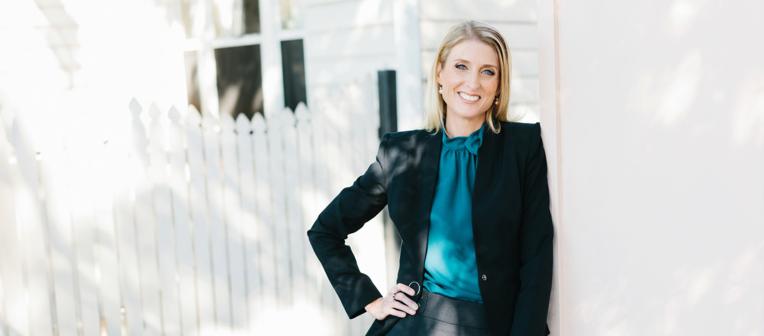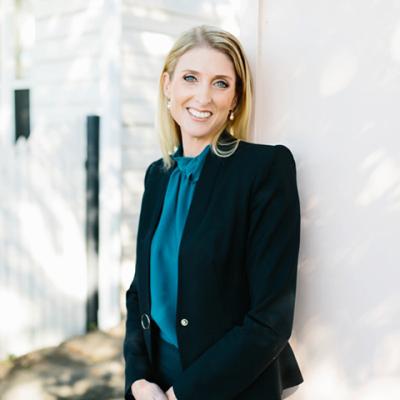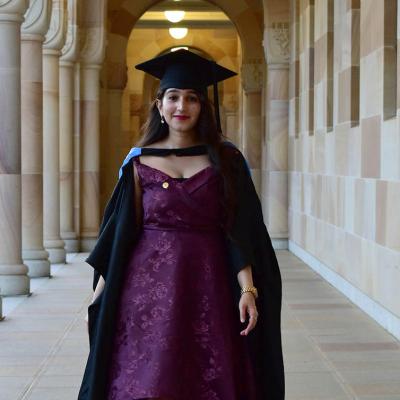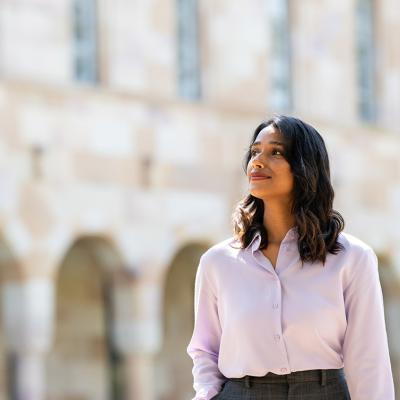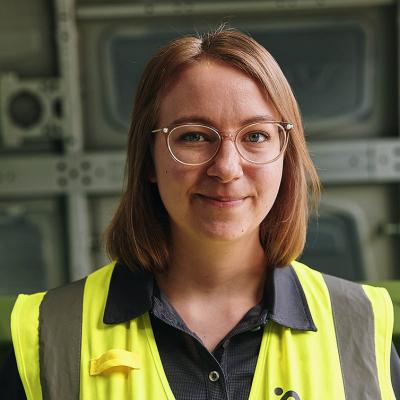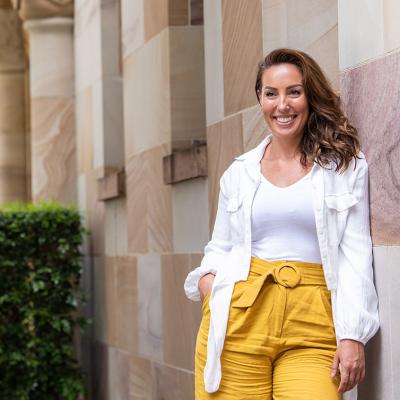When most people think of counselling, they might picture a one-size-fits-all approach to therapy. But for Dr Kate Witteveen, a Lecturer in UQ’s Master of Counselling program, it’s much more personal.
“Counselling is about empowering clients to recognise their own agency and wisdom, even in situations that feel beyond their control,” says Kate.
With a passion for understanding the human experience, she brings a wealth of knowledge and experience to her students, encouraging them to become compassionate and client-centred practitioners.
A journey from law to counselling
Kate’s career path didn't always lead towards counselling. She originally aimed to work in law, though her true interests lay elsewhere.
“During my law studies, I realised I was more interested in how people found themselves in difficult situations and how they must be feeling, rather than the legal details,” she says.
This realisation prompted Kate to step away from her law degree, marking the beginning of her journey into counselling. She completed an undergraduate degree in counselling and began her career working with adolescents who were disengaged from the educational system.
Her passion for understanding the human experience drove her to pursue further postgraduate studies in psychology, eventually guiding her into a fulfilling role in academia.
Teaching at UQ: aligning passion with purpose
After spending several years in academia, Kate decided to step away and start her own coaching business, deepening her understanding of what clients truly need. Her love for teaching and mentoring eventually drew her back to academia, where she found that her values of authenticity, connection and excellence were a perfect match for her role at UQ.
This alignment enables Kate to integrate her vision of “excellence through connection” into her teaching, creating a supportive and interactive learning environment. She highlights the importance of developing strong, empathetic relationships.
Her approach not only enriches the educational experience but also provides students with the skills to engage deeply with their future clients, reflecting the values she holds close.
“At UQ, I have the opportunity to engage with students who are genuinely passionate about making a difference in the lives of others," says Kate.
“It’s incredibly rewarding to guide them through their educational journey, watching them evolve and grow both personally and professionally. Being part of their transformation and seeing their dedication to the field is what makes teaching here so fulfilling.”
Elevating counselling education
UQ's Master of Counselling stands out for its thorough integration of theory and practice.
“Our program is unique because we don't limit ourselves to a single method,” says Kate.
“We emphasise integrative approaches to counselling and applied psychotherapy. By introducing students to a wide range of techniques, we equip them to tailor their methods to each client's specific needs, ensuring a truly client-centred practice.”
Kate highlights the program's extensive curriculum.
“Students explore core counselling theories, ethical practices, and specialised areas like family therapy and crisis intervention. They also engage with research that underpins effective counselling practices.”
The collaboration with UQ’s School of Psychology adds another layer of advantage.
“Working alongside the School of Psychology enriches our program,” she says.
“Students gain access to the latest psychological research and insights, enhancing their understanding and practice.”
With over 360 hours of practical placements, the program provides crucial hands-on experience.
“This practical component bridges the gap between theory and real-world application,” says Kate.
“It prepares students to handle a wide range of situations effectively.”
Accredited by the Australian Counselling Association and the Psychotherapy and Counselling Federation of Australia, the program ensures graduates are well-prepared for diverse counselling roles, from crisis support to grief counselling and beyond.
Empowering women with ADHD
Through her therapeutic work, Kate has supported many women diagnosed with ADHD later in life. This experience has inspired her to lead a groundbreaking study exploring the experiences of women diagnosed with ADHD in adulthood.
“Women and girls have been under-represented in previous ADHD research, most of which had been done overseas,” she says.
“The studies that did include girls noted they are less likely to get an early diagnosis of ADHD, as they have flown under the radar during their formative years."
Kate highlights that ADHD symptoms often intensify during primary school years, a critical period for developing self-perception and identity.
“When girls are not diagnosed with ADHD and form their own interpretation of their behaviour and tendencies, they may become highly self-critical,” she says.
“Undiagnosed women may struggle with negative feelings and not realise that their challenges are symptoms of ADHD – things like being able to accurately estimate the time tasks take to be completed."
“The aim of my research is to dispel misconceptions about ADHD in girls and women, contributing to better assessment, diagnostic and treatment protocols.”
Ready to start your own journey in counselling and mental health?

